So-called “downer” cows that are too ill to walk are not allowed into the food supply due to a higher instance of bovine spongiform encephalopathy ( mad cow disease)—which is why an undercover video taken by animal rights activists is causing a stir at the USDA.
meat
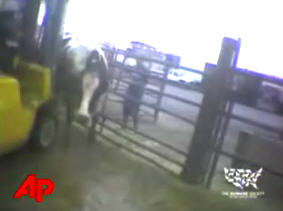
USDA Stops Production At Meatpacking Facility After Undercover Video Showed Sick Cows Being Abused

The Truth About Kobe Beef
Real Kobe beef can only come from one region of Japan—and since the U.S. has banned Japanese beef imports due to mad cow fears, the best you can hope for now in an American restaurant is Kobe-style beef, writes Debonair Magazine. They explain what to look for if you’re shopping for this premium beef in the U.S., and the best way to prepare it.
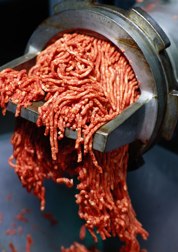
Meat Industry Discovers Consumers' Trust Has Eroded
The meat and poultry industries have learned that if you poison your customers enough times, they’ll eventually start losing trust in you—although, oddly, they won’t change their purchasing habits. That’s the takeaway from a study carried out by Meatingplace.com (snicker) and “its sister publication POULTRY” (ha ha WHERE’S CHRIS HANSON). However, no description of the study is provided other than that Zoomerang.com was used, so we’re not sure if the results are at all meaningful. We’re just glad the meat industry is starting to notice something’s wrong.
../../../..//2007/12/11/its-good-its-bad-its/
It’s good, it’s bad, it’s good and now, high consumption of red meat is correlated with increased risk of cancer. [Reuters]

Most Recalled Meat Is Eaten, Never Recovered
Most recalled meat is eaten before it can be returned to the factory, according to a nauseating analysis by USA Today. Well-publicized and timely recalls catch slightly less than of all affected meat, a stunning accomplishment when compared to the recovery rates for tainted meat that sickens people.
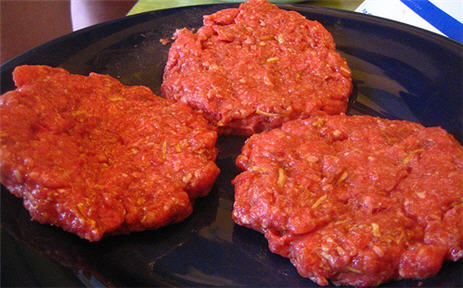
Meat Sold In Bulk To Retailers And Distributors Recalled For e. Coli
Meat processed by American Foods Group of Green Bay, WI has been recalled following an investigation by the Illinois Department of Health. The meat was sold in bulk quantities to retailers and distributors and may not be easily identifiable to consumers, says the USDA:
The products subject to recall were distributed for further processing and repackaging and will not bear the recalling firm’s establishment number on the package. As the use-by date for products subject to this recall may have expired, consumers can contact their retailers to ask if they received any of these products and if so, consumers are urged to look in their freezers for these products and return or discard them if found.

E.Coli Meat Just Gets A "Cook-Only" Label Slapped On
It’s legal for meat companies to sell meat with food-poisoning bacterium E. coli on it, as long it’s labeled “cook-only.” The result, say anonymous USDA inspectors speaking with the Chicago Tribune, is higher levels of E. coli are tolerated in the plants.
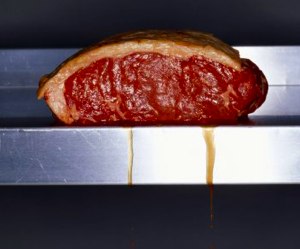
Carbon Monoxide-Treated Meat Is Here To Stay, For Now
In hearings today, the meat producers Hormel Foods Corp and Cargill Inc testified that the practice of treating meat with carbon monoxide to preserve its red color is safe and should be allowed. As a compromise, they suggested a label on all CO-treated meat and fish that reminded consumers to refer to the date on the package to determine its freshness. According to Reuters, “officials at the Food and Drug Administration and U.S. Agriculture Department said they stand by the safety of the carbon monoxide practice and would revisit the process if new data becomes available.”

Cargill Recalls 1 Million Pounds Of Tainted Beef
Agribusiness monster Cargill is recalling 1 million pounds of beef that may be contaminated with E. coli. The potentially tainted meat was butchered between October 8 and October 11 at the “Cargill Meat Solutions” slaughterhouse in Wyalusing, PA. According to Cargill, there have been no reports of illness. After the jump, the long list of recalled products.
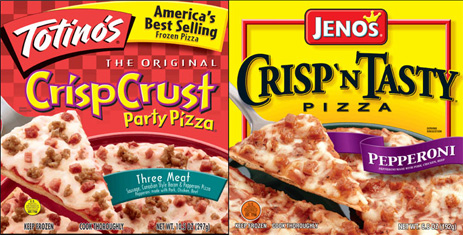
USDA Recalls Totino's, Jeno's Delicious E. Coli Flavored Pizzas
Yesterday the USDA recalled several types of both Totino’s and Jeno’s meat pizzas because they are tainted with e. coli. E. coli bacteria is not destroyed by freezing, so you’ll want to avoid eating these pizzas. The USDA considers this a Class I recall, which is defined as “a health hazard situation where there is a reasonable probability that the use of the product will cause serious, adverse health consequences or death.”
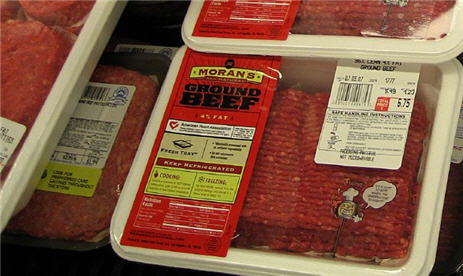
Fake Red Meat: Meatpackers Warn Consumers To "Use The Sell By Date"
As we’ve already mentioned, packing meat in carbon dioxide keeps it from turning brown, but doesn’t keep it from spoiling—making it more likely that consumers will buy, and eat, nasty spoiled meat.
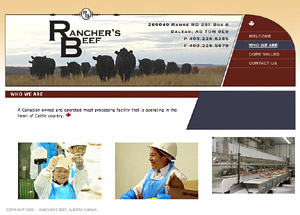
USDA Says Defunct Canadian Meatpacker Was Source Of Recent E.coli Beef Contaminations
The U.S. Food Safety and Inspection Service has used “DNA fingerprints” to trace the source of recent U.S. outbreaks of contaminated beef back to one shoddy supplier in Alberta, Canada. The company most likely responsible is Rancher’s Beef, Ltd, which went out of business on August 15th, but not before helping sink Topps and contributing to nearly 100 illnesses in the U.S. and Canada.
../../../..//2007/10/26/blue-ribbons-meats-in/
Blue Ribbons Meats in Florida is recalling over 8,000 pounds of “seasoned beef and meatloaf” frozen patties due to suspected E.coli contamination, although no illnesses have been reported yet. The patties were shipped to a Florida correctional institution and the U.S. Virgin Islands. This is the fifth E.coli-related recall this month. [Reuters]
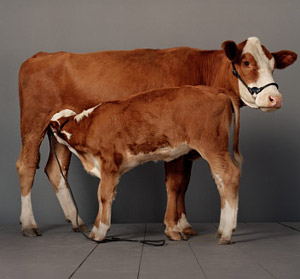
A Bunch Of Groups Compromise On State Meat Inspections
From the “boring but important” category of meat-related news, the Consumer Federation of America has joined with other advocacy groups as well as union and labor groups, under the assistance of men and women in Congress, to work out a compromise in response to July’s ill-conceived attempt by Minnesota Rep. Collin Peterson to do away with the federal inspections requirement for interstate meat sales. The new plan augments Peterson’s measure in a way that ensures state-inspection procedures meet or exceed federal ones.
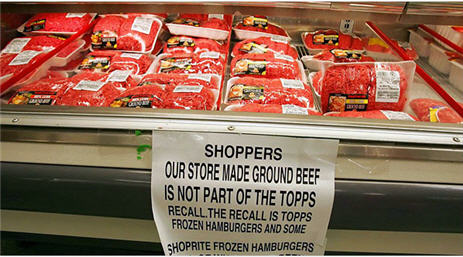
How Topps Hamburger Overproduced Themselves Out Of Business
The demand for frozen hamburger patties is overwhelming! Shoppers just can’t get enough of cheap frozen hamburgers.
../../../..//2007/10/17/wired-talks-to-farmers/
Wired talks to farmers who own cloned livestock and dairy cows—2nd and 3rd iterations of valuable original “models.” The FDA hasn’t officially approved cloned meat and milk for supermarkets yet, though, and lots of consumers still freak out. (Did you when you read that first sentence?) [Wired]
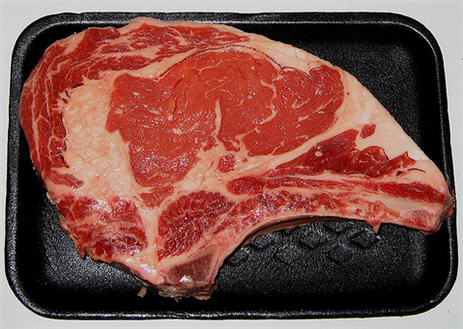
USDA Food Inspector Calls Job "Just A Joke"
An article in the Chicago Tribune takes yet another look at our broken food safety system, declaring that a USDA Food Inspector’s job is now less about inspecting meat and more about inspecting paperwork.
After the Jack in the Box case, the USDA required each meat plant to adopt a Hazard Analysis and Critical Control Point plan. The plans let companies design their own food safety measures, usually around the need to process beef quickly.


